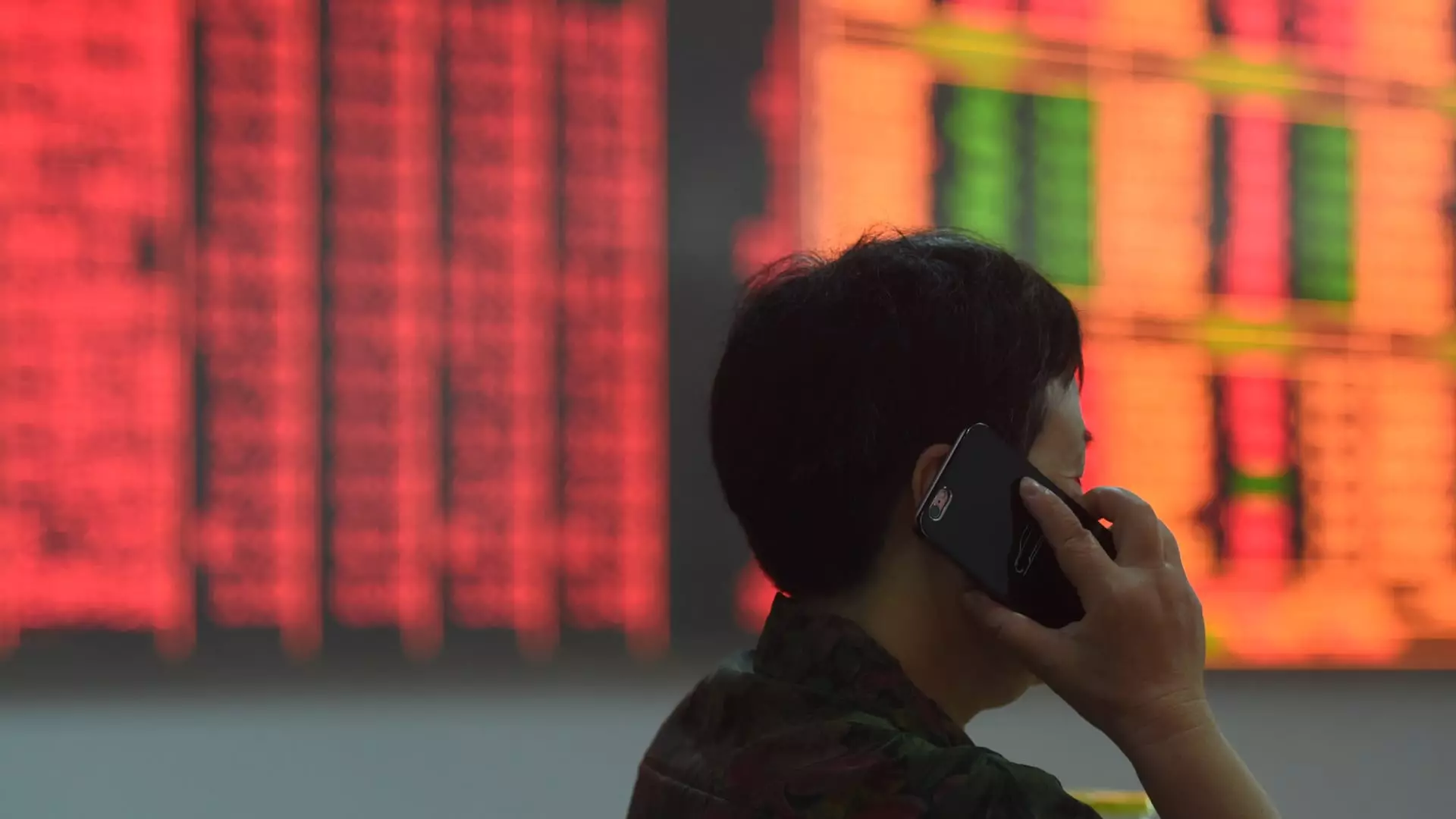China’s recent policy announcements have ignited a flurry of speculation and renewed optimism among investors. However, beneath the surface, experts warn that these signals primarily affect market sentiment rather than fundamentally addressing critical issues such as the ongoing real estate decline. The complexities involved in navigating the world’s second-largest economy remain daunting, raising questions about the efficacy of Beijing’s strategies in reviving consumer confidence and fostering sustainable growth.
The Shanghai Composite Index experienced a notable surge recently, reaching a three-month high following a Politburo meeting chaired by President Xi Jinping, where discussions revolved around economic revitalization. The gathering, while significant, offered little in terms of actionable plans, leading analysts like Ting Lu from Nomura to caution that Beijing’s piecemeal approaches have been inadequate. Although this high-level meeting is perceived as a response to urgent economic challenges, the lack of specific policy details undermines the potential for long-term confidence restoration.
Lu aptly describes the “shock and awe” strategy employed by Chinese authorities, aimed at reigniting market spirit. Still, he stresses the importance of developing coherent and well-structured policies to tackle entrenched economic woes. The oscillating between vague promises and tangible reforms may only serve to placate markets temporarily, with real investment becoming elusive without concrete actions.
China’s economic deceleration is largely attributed to its beleaguered real estate market, which is entering its fourth consecutive year of contraction. Experts indicate that retail sales have barely budged beyond a 2% increase, and industrial profits have stagnated for most of the year, while exports appear to be one of the few sectors experiencing moderate growth. There is a consensus among economists that stabilizing the property market is crucial for the country’s overall economic rebound.
Lu’s projection that any stimulus measures might only contribute a modest 3% to China’s annual GDP underscores the limited impact of current government strategies. This mirrors concerns from various investment institutions, with many asserting that Beijing’s recent interest rate cuts have failed to reinstate consumer confidence. Paul Christopher from Wells Fargo echoes this sentiment, highlighting that fear of borrowing among consumers undermines the potential benefits of lowering borrowing costs.
The Chinese government has implemented stringent measures targeting various sectors, including real estate and education. Although there have been signs of an easing in these regulations, the overall market sentiment remains tepid. The lingering impact of these crackdowns has been profound—consumers and businesses are hesitant to engage in financial activities, leading to a persistent decline in corporate borrowing even amidst historically low interest rates.
The China Beige Book’s survey, which indicated a drop in corporate borrowing, reinforces concerns regarding long-term economic health. The question is not merely whether the policies will work, but whether they can replenish the trust lost among the Chinese populace and businesses alike.
Despite the cautious tone from analysts, some investors have started to express renewed interest in Chinese equities. The CSI 300 index’s remarkable climb may signify a turning point, with growth projections suggesting a potential increase of an additional 10%. Market strategists like Laura Wang from Morgan Stanley find room for cautious optimism as earnings begin to reflect renewed activity, albeit tempered by risks inherent in the economic climate.
Prominent figures such as hedge fund manager David Tepper have also jumped at the opportunity, purchasing Chinese stock amid the recent signals from the Politburo. However, this renewed investment appetite does not absolve systemic issues from scrutiny. Many remain skeptical about whether these policy changes will result in sustainable economic improvements.
While China’s latest announcements have uplifted market sentiment and signaled potential for recovery, the underlying structural problems in the economy remain unaddressed. The rhetoric from high-level meetings needs to be complemented by concrete actions to nurture genuine trust among consumers and investors. Moving beyond temporary boosts in market confidence to enact profound, well-structured policies will be critical in ensuring a stable economic future for China. As the global community continues to watch, the balance between optimism and caution represents the delicate state of China’s economic health.


Leave a Reply